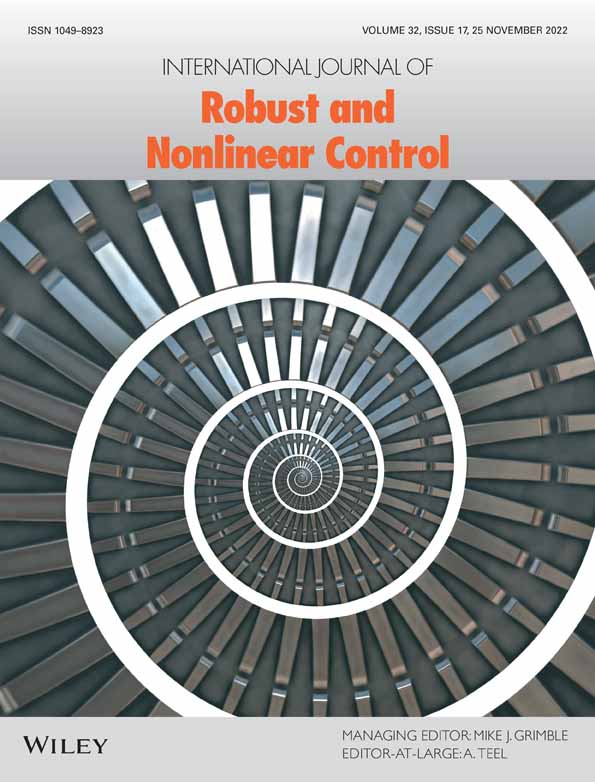An iterative learning approach to formation control of discrete-time multi-agent systems With varying trial lengths
Funding information: National Basic Research Program of China (973 Program), Grant/Award Number: 2012CB821201; National Natural Science Foundation of China, Grant/Award Numbers: 62073020; 62133001; 61976013; 61520106010
Abstract
In this article, an iterative learning approach is proposed for the formation control of discrete-time multi-agent systems, where the trial length of each learning iteration is randomly varying. In particular, a modified state error related to the prescribed formation is defined by taking into account the nonuniform actual trial length that could be different from the desired one. Then, a P-type iterative learning protocol is established for switching networks of agents subject to nonuniform trial lengths, and the convergence analyses are given for the fixed and the iteration-varying initial conditions respectively. It shows that through iterative learning, the given formation will be maintained among multiple agents in the entire time interval of one trial. In the end, simulations are done to demonstrate the correctness of the obtained theoretical results.
CONFLICT OF INTEREST
The authors declare that there is no conflict of interest for this article.
Open Research
DATA AVAILABILITY STATEMENT
Data sharing is not applicable to this article as no datasets were generated or analyzed during the current study.




